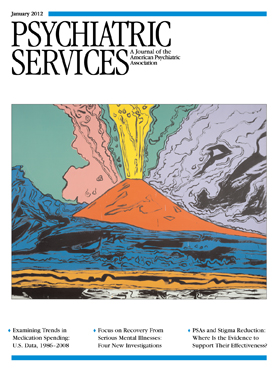Predictors of Relapse in the Year After Hospital Discharge Among Patients With Schizophrenia
Abstract
Objective:
Relapse and its predictors were examined among patients with schizophrenia in the year after hospital discharge.
Methods:
The sample included 200 patients with schizophrenia participating in a German multicenter study. Relapse was defined as a worsening of psychopathological symptoms or rehospitalization in the year after hospital discharge. Predictors examined were variables related to course of illness and to response and remission at discharge.
Results:
Fifty-two percent of participants had a relapse. Patients whose symptoms were not in remission at discharge were more likely to have a relapse, as were those who had more severe symptoms and more side effects at discharge. Those who experienced a relapse were less likely to be taking a second-generation antipsychotic at discharge, less likely to have a positive attitude toward treatment adherence, and less likely to be employed.
Conclusions:
The high rate of relapse among patients with schizophrenia highlights the need to improve current treatment strategies. (Psychiatric Services 63:87–90, 2012)



